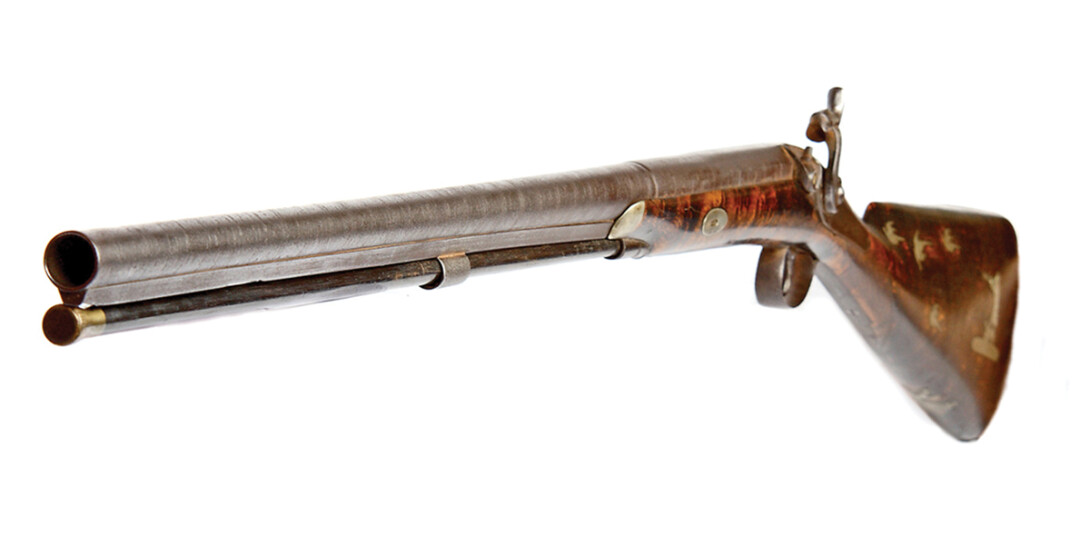OBAMA Takes Executive Action Regarding Guns
Pat Hill | Monday Feb. 1st, 2016
Last month President Obama took executive actions aimed at curbing gun violence in the United States, and the reviews have been expectedly mixed. 
The President has not called for any new laws, issuing executive actions rather than executive orders. Though a political nuance, there is a difference. An executive order is a specific type of presidential action--an official, legally binding mandate passed down from the president to federal agencies under the executive branch. Executive actions can include executive orders, but can also include presidential memorandums, proclamations, or any number of other ways the president directs the operations of the executive branch.
“There’s certainly nothing wrong with issuing an executive order. There’s nothing wrong with issuing lots of executive orders,” says Eric Posner, a professor at the University of Chicago Law School and expert on constitutional law. “It just depends on what’s going on in the world and what the president needs to address.” Among the most prolific when it came to issuing executive directives from the White House were Franklin D. Roosevelt, who wrote 3,721 executive orders; Woodrow Wilson, with 1,803; and Calvin Coolidge, with 1,203. Meanwhile, presidents like John Adams, James Madison and James Monroe issued just one such action in their respective presidencies.
The executive actions that the President took outline goals in four areas: background, community safety, mental health and reporting, and gun safety technology. They are also aimed at making sure that laws already in place are enforced. This includes background checks for buyers, and 230 new examiners will be hired by the FBI to process background checks more effectively.
The measures clarify that individuals “in the business of selling firearms” register as licensed gun dealers, effectively narrowing the so-called “gun show loophole,” which exempts most small sellers from keeping formal sales records. The ATF will also create an across-the-board rule stating that no matter where someone is selling a firearm--store, gun show or internet--a background check and a license will be required. Obama is also asking the government to research smart gun technology to reduce accidental shootings and asking Congress for $500 million to improve mental health care.
The President’s actions come after a year in which mass shootings were center stage. In early December, 14 people were killed and 21 injured in San Bernadino, California, in a shooting, just days after three were killed and nine injured in Colorado Springs, Colorado. On Oct. 1, a gunman shot and killed nine people in Roseburg, Oregon; in July, five people were shot dead in Chattanooga, Tennessee. Nine people were killed in a shooting at a Charleston, South Carolina church in June, six people were shot to death in Isla Vista, California in May, and three people were killed in Ft. Hood, Texas in April. And according to data from the Montana Incident-Based Reporting System, law enforcement reported that firearms were used in 532 crimes in 2014, including 16 murders. And the Centers for Disease Control and Prevention reported there were 172 gun-related deaths in the state in 2013, up from 171 in 2012.
Many polls have found broad support for expanded background checks, including a Quinnipiac University poll in December. That poll showed 89% overall support it: 84% in gun-owning households, 87% of Republicans, 86% of independent, and 95% of Democrats. In a CNN poll the same month, however, 48% of Americans said they were in favor of stricter gun control laws, while 51% were opposed. Support for stricter laws has been less than half since 2013. There’s a sharp partisan divide on the question, with 74% of Democrats in favor of stricter laws, while just 23% of Republicans feel the same way. Critics, however, said that Obama’s executive actions would likely have little or no impact on the issue of guns getting into the hands of the wrong people.
“The things the president announced in his news conference are mostly smoke and mirrors and are not going to have much impact on the street, I don’t think,” Gary Marbut, president of the Montana Shooting Sports Association, said. “A lot of the things that he talks about are things that have been in the works for executive branch agencies for a year or more.”
Speaking with the Flathead Beacon, Republican Montana U.S. Sen. Steve Daines said growing up in this state allowed him to learn how to properly handle a firearm as a child, and he views firearms as “a part of who we are as Montanans. Daines said he believes that had Obama’s executive actions been in place a year ago, they wouldn’t have stopped the mass shootings.
“My concern is that the president, as this new year began, he had a chance to set in play a narrative around how we can address these issues of violence and these mass shootings,” Daines said. “Instead, what he has done is he’s more focused on undermining the Second Amendment rights on law-abiding Americans.” Daines said the focus of the gun narrative should be on the mental illness issues of recent mass shooters, the issue of stolen guns being used, and the existence of gun-free zones.
Montana U.S. Sen. Jon Tester released a statement after the president’s announcement, mentioning that he is a gun owner and supports closing the “background check loophole” at gun shows.
“Unfortunately this announcement speaks to the dysfunction of Congress and its failure to tackle tough issues,” Tester said. “I’m looking closely at this to make sure that it doesn’t infringe on our Second Amendment rights or erode our western values while also protecting us from folks who would do us harm.”
| Tweet |
